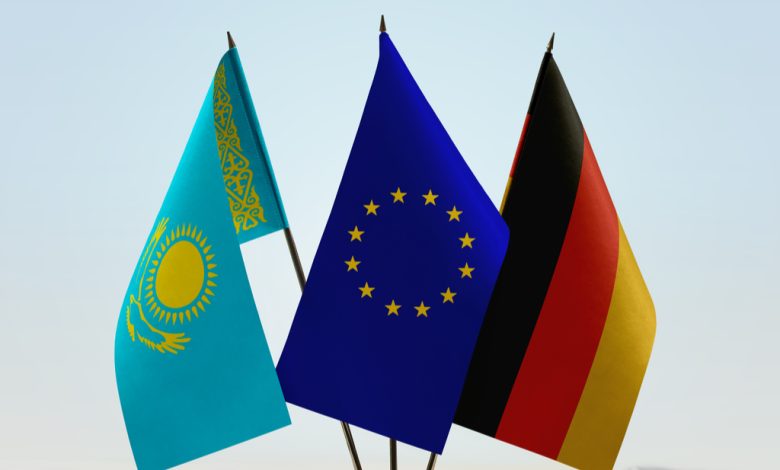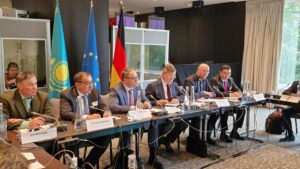Kazakhstan and EU Strengthen Ties Through ESG Principles at Berlin Eurasian Club

ASTANA – The Berlin Eurasian Club (BEC) held its 41st meeting on Oct. 17 in Brussels, focusing on the adherence to ESG (environmental, social and governance) principles in economic cooperation between Kazakhstan, the European Union and Germany, reported the Kazakh Foreign Ministry’s press service.

The 41st meeting of the Berlin Eurasian Club. Photo credit: gov.kz
Kazakhstan’s Deputy Foreign Minister Roman Vassilenko highlighted the key outcomes of German Chancellor Olaf Scholz’s official visit to Kazakhstan on Sept. 16-17 and the progress in implementing ESG principles in the country.
Vassilenko discussed the effectiveness of the BEC platform in strengthening the business partnership, noting the signing of 41 agreements worth $6.3 billion during the Kazakh-German Business Forum. He called on European partners to expand investments in Kazakhstan, considering the application of sustainability principles across all sectors of the economy.
“Kazakhstan is promoting a new economic paradigm aimed at creating an economy based on sustainability and environmental responsibility, implementing business obligations aligned with European and German sustainable supply chain laws, and developing a carbon credit trading system,” Vassilenko said, highlighting the strategic goal of achieving climate neutrality by 2060.
Cyril Loisel, International Relations Officer for the European Commission’s Energy Task Platform, welcomed Kazakhstan’s green hydrogen project implemented by HYRASIA/Svevind and the country’s accession to the Global Methane Pledge. He emphasized the potential for further collaboration on energy connectivity between Europe and Central Asia.
Participants concluded that the adoption of ESG principles is becoming an increasingly important factor for maintaining economic competitiveness. They noted that one of the leading drivers of ESG principles in Kazakhstan is the financial sector and adopted several regulatory acts to stimulate and enhance transparency of ESG approaches in banking and financial institutions, including in the financing of new projects.
Founded in 2012, the BEC promotes dialogue between Kazakhstan, Central Asia and the EU in socio-political, trade-economic and educational cooperation.

